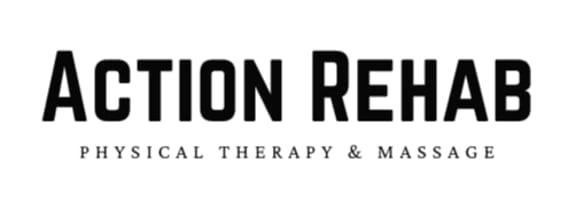Finding the right individuals for your organization goes beyond simply filling vacancies; it involves carefully selecting talented individuals who align with your company’s values and possess the necessary skills for specific roles.
This is where pre-employment screening comes into play, weaving its fine threads into the broader hiring strategy.
A robust candidate evaluation process can greatly benefit a company, leading to a thriving and resilient workforce.
Pre-employment screening sets the tone for workplace safety, performance standards, and employee satisfaction. In this blog post, we will explore the importance of pre-employment screening in the workplace.
The Value of Pre-Employment Screening
Pre-employment screening involves a myriad of assessments and evaluations designed to verify the qualifications, capabilities, and overall suitability of candidates for specific roles. By scrutinizing various aspects ranging from the candidate’s physical abilities to their mental acuity and emotional resilience, this screening process essentially acts as a quality assurance measure, ensuring that the individuals you bring into your company are well-suited for the roles they are expected to fill.
Through comprehensive candidate screening, employers significantly mitigate the risk of workplace injuries caused by physical strain or lack of skill, thus fostering a safer work environment. In addition, applicant screening ensures compliance with regulatory standards, showcasing the organization’s commitment to adhering to legal and ethical guidelines in hiring practices.
Candidate screening plays a pivotal role in identifying those individuals best equipped for the demands and expectations of their potential roles. By delving deeper into the screening process, employers can uncover those applicants who embody not just the technical skills but also the soft skills essential for workplace integration. For example, team roles might necessitate an individual who excels in communication and collaboration, whereas other positions might prioritize analytical skills and independent problem-solving.
Additionally, candidate screening helps you understand prospective employees better, assessing not just their compatibility with the role but also their potential for growth within the company. The pre-employment screening’s importance extends to protecting your business from high turnover rates, as selecting the right candidate the first time reduces hiring costs and stabilizes workforce performance, reflecting positively on your bottom line.
Engage with candidates during pre-employment screening to discern their alignment with your company’s mission and values, thus ensuring a harmonious workplace culture. An effectively applied applicant screening system will reveal candidates’ work ethic, adaptability, and cultural fit. By doing so, it creates a workforce that not only performs well but also thrives in the organizational environment, promoting job satisfaction and reducing conflict.
Moreover, pre-employment screening serves as an opportunity to set expectations clear from the outset, helping candidates understand what is required and whether they can flourish in positions offered. The clarity and transparency of such a process strengthen mutual respect and a positive working relationship from day one, promoting longevity and loyalty.
Unpacking the Screening Process
As we unpack the pre-employment screening process, it becomes clear how each component contributes to identifying quality candidates. To begin with, background checks are integral. These checks involve verifying the historical narratives provided by candidates, including education, past employment, and criminal records. Such due diligence ensures that the candidates’ reported experiences and milestones align with their claims.
For example, discrepancies in employment dates or roles can highlight red flags that might have otherwise gone unnoticed. Businesses want to make sure that individuals who will be trusted with sensitive tasks or information have a history that aligns with the company’s values and requirements. While a background check might seem intrusive at first glance, it is key for verifying integrity and building trust right from the hiring process.
Pre-employment tests focus on assessing specific skills and competencies relevant to the role. These tests are versatile and can assess a range of capabilities, from technical skills like IT proficiency to soft skills such as communication and teamwork. By evaluating these factors, businesses can better gauge an applicant’s potential performance in their prospective roles.
For example, a hands-on skills test can demonstrate practical proficiency that a resume might not fully capture. Furthermore, pre-employment tests can delve into cognitive and psychological assessments, assessing how candidates handle stress and adapt to change. Not only do these tests provide insights into an applicant’s current abilities, but they also indicate potential for future growth. Such evaluations allow companies to tailor their workforce to meet specific operational demands while fostering a culture of ongoing professional development.
Credentials verification, alongside qualifications verification, is a further critical element. This stage of the pre-employment screening process involves confirming the authenticity of academic and professional credentials a candidate claims. By rigorously checking educational degrees, certifications, and licenses, companies assure themselves of the applicants’ formal qualifications and compliance with industry standards. Beyond preventing fraud, this verification supports the maintenance of a competent workforce capable of upholding the organization’s standards.
In fields like healthcare or engineering, where precision and expertise are fundamental, credentials verification is non-negotiable. It ensures that hires are not just seemingly qualified but also legitimately educated or trained. This systematic and thorough approach minimizes the risk of hiring underqualified employees who may not meet job requirements, further safeguarding the company’s reputation and ensuring optimal workforce performance. Hence, embedding these screening components into your hiring process is a decisive step toward nurturing a capable and resilient team aligned with your organization’s vision.
Incorporating Effective Screening Processes
Let’s delve into the practical steps of how to incorporate pre-employment screening into your company’s hiring practices:
- Start by clearly defining the roles and responsibilities that each position entails. Understand that roles can vary greatly even within the same field, so having a detailed job description is invaluable. This sets the stage for which specific skills and capabilities need to be assessed.
- Next, establish a structured framework that guides the screening process—from initial application reviews to interviews and tests. Outline the necessary benchmarks candidates must meet within these stages to proceed further. A step as straightforward as integrating a screening checklist into your current HR software can help track these benchmarks more effortlessly.
- Leveraging technology can amplify your efforts. You might consider utilizing digital platforms for tasks such as background checks and skills assessments. These platforms offer the benefits of speeding up turnaround times, reducing human error, and enhancing the overall candidate experience. Whether you opt for an all-in-one HR solution or specialized software for each screening stage, make sure it aligns with your organizational size and goals.
Bringing employees on board who meet not only the technical requirements but also fit the company’s culture greatly hinges on how well the screening process is implemented. Trainings and workshops can be valuable, equipping your HR team to execute screenings more efficiently. By investing in HR personnel’s skill development in areas like behavioral interviews and data analysis, you enhance the screening process’s effectiveness.
Further, it could also be advantageous to involve line managers in this process. Given their firsthand experience with team dynamics and job realities, they can provide nuanced insights into the behavioral and skill sets needed for success in their specific departments.
Another key element when looking at how to incorporate pre-employment screening is communicating transparently with candidates about what to expect throughout the screening. Providing details on what will be evaluated, and why, helps reduce anxiety for the candidate and highlights your organizational commitment to fairness and integrity. This step of transparency not only promotes a respectful candidate experience but also attracts those who align with your values, sparking interest in your company long before they step through the doors.
Related: How Do I Return to Work After a Workers Comp Injury?
Looking for Expert Help?
At Action Rehab, based in the community of Honolulu, we understand the complexities involved in creating a robust and reliable workforce. We bring more than just clinical expertise; we offer a personalized approach through our pre/post-hire screening services tailored to your company’s specific requirements. By assessing a candidate’s fit in terms of both skill and cultural alignment, companies can build a more resilient and cohesive workforce, leading to enhanced workplace satisfaction and sustained organizational growth.
Contact us for more information on how we can meet your evaluation needs.
Embrace this strategic approach by contacting our team at actionrehaboffice@gmail.com or reaching out by phone at (808) 597-1555.

